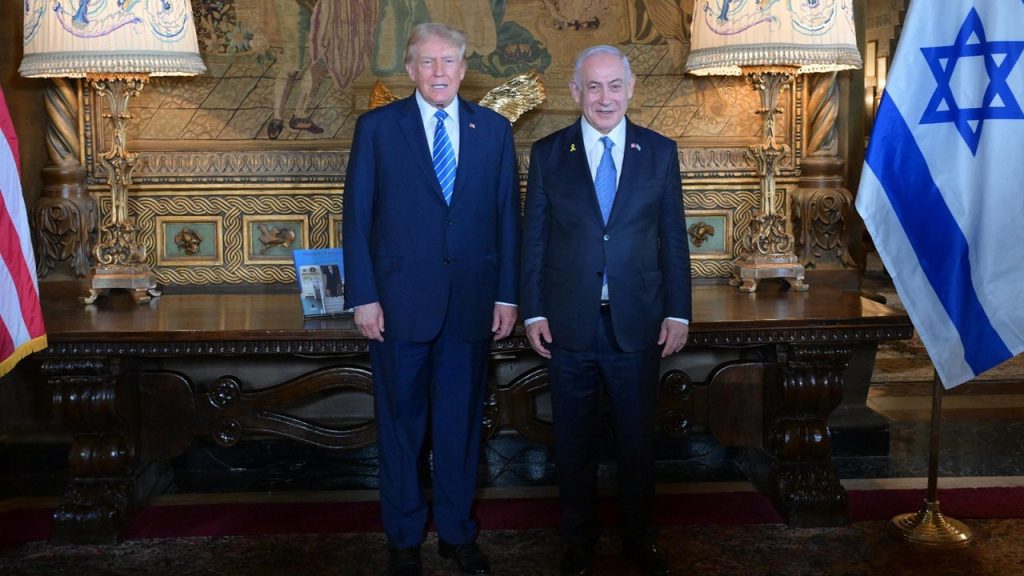Former President Trump reportedly urged Israeli Prime Minister Benjamin Netanyahu to end the Israel-Hamas war by the time of his potential inauguration, according to an anonymous source familiar with the situation. The request was made during a meeting between Trump and Netanyahu at Mar-a-Lago in July, with a deadline of Jan. 20. Trump has expressed support for Israel’s targeting of Iranian nuclear sites but has not spoken extensively about the ongoing conflict on the campaign trail.
The Biden-Harris administration has been generally supportive of Israel, despite criticism of the Israel Defense Forces’ recent military operations. President Biden called for a ceasefire shortly before Israel invaded Lebanon earlier this month. At a CNN town hall, Vice President Harris avoided directly answering a question about her stance on Israel, instead focusing on President Trump’s behavior and his comments comparing his generals to Hitler’s. The White House has expressed concerns about the situation in the Middle East but has not taken a clear position on the Israel-Hamas conflict.
Suspects were recently arrested for assaulting a police officer outside of a Kamala Harris rally in Washington, D.C. The incident highlights the heightened tensions and security concerns surrounding political events in the current climate. Meanwhile, officials from battleground states have warned about the threat of foreign enemies using misinformation to undermine the democratic process. This raises concerns about the integrity and security of the upcoming election and the potential influence of outside actors on the outcome.
While Trump’s campaign has not publicly addressed his reported conversation with Netanyahu, it underscores the complexity of U.S.-Israel relations and the ongoing conflict in the region. The involvement of foreign actors in spreading misinformation and inciting violence adds another layer of concern to an already contentious political landscape. The diverging views on Israel within the Biden-Harris administration and the broader political discourse highlight the challenges of navigating international relations and domestic security in the current political climate.
The exchange between Trump and Netanyahu hints at a potential shift in U.S. foreign policy towards Israel if Trump were to be re-elected. The timeline attached to Trump’s request for resolving the Israel-Hamas conflict by his inauguration adds a sense of urgency to an already volatile situation in the Middle East. The contrasting approaches of the Trump and Biden campaigns towards Israel and the broader implications for U.S. foreign policy underscore the importance of clear and informed decision-making in addressing complex international conflicts and security threats.
Overall, the reported exchange between former President Trump and Israeli Prime Minister Netanyahu sheds light on the dynamics of U.S.-Israel relations, the ongoing conflict in the Middle East, and the broader challenges facing the Biden-Harris administration. The incident also highlights the risks posed by foreign interference and misinformation in undermining democratic processes and inciting violence. As the political landscape continues to evolve, it is essential for policymakers and elected officials to navigate these complex issues with caution, transparency, and a commitment to upholding the values of democracy and international cooperation.


